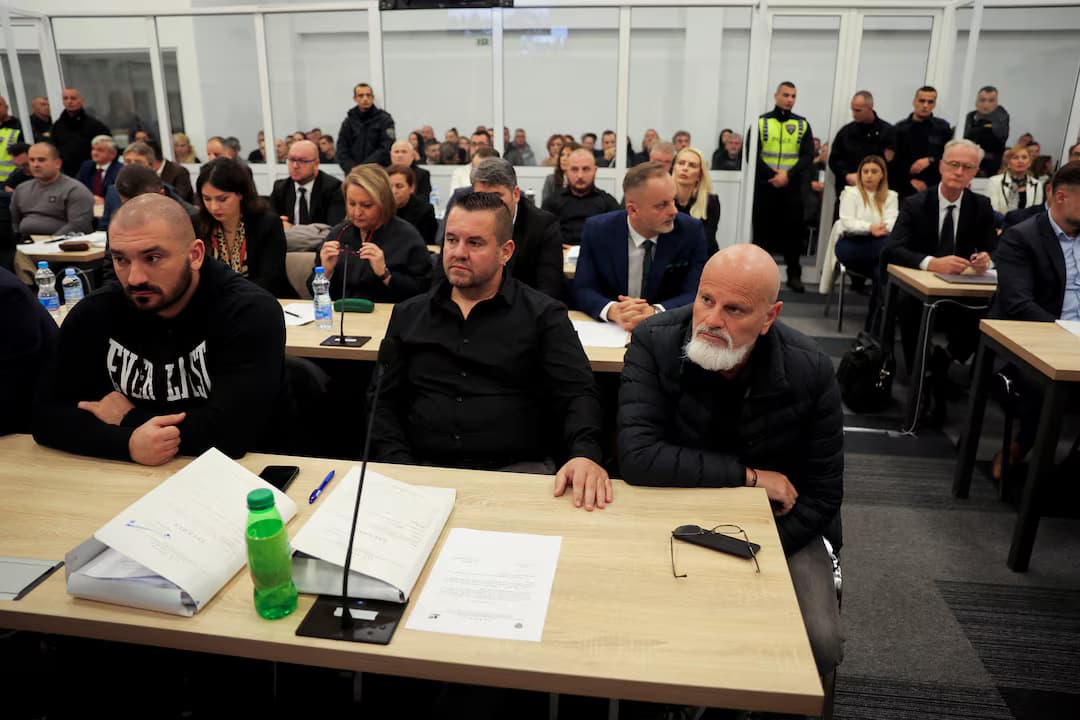We're loading the full news article for you. This includes the article content, images, author information, and related articles.
A landmark trial has opened in North Macedonia, charging 38 individuals and entities with systemic safety failures leading to one of Europe's deadliest nightclub fires. The case highlights critical global lessons on public safety and regulatory enforcement.

A highly anticipated trial began in Skopje, North Macedonia, on Wednesday, November 19, 2025, bringing 35 individuals and three companies to court over a catastrophic nightclub fire that resulted in the deaths of 63 people, mostly youths, and injured over 200 others. The case, held in a high-security courtroom at the Idrizovo prison complex, addresses the tragic events of March 16, 2025, at the Pulse nightclub in the eastern town of Kocani.
The defendants, who include the nightclub's owner, three former mayors of Kocani, public licensing officials, building inspectors, and security personnel, face charges of “serious crimes against public security.” Prosecutors allege a long chain of negligence and corruption that rendered the venue a death trap. The indictment details numerous safety breaches, including operating without a proper license, the use of highly flammable materials in construction, insufficient fire exits, and a lack of adequate fire extinguishers.
The fire reportedly started around 2:35 AM local time when sparks from pyrotechnic devices, used during a performance by a popular hip-hop duo, ignited flammable acoustic foam on the ceiling. The blaze spread rapidly through the overcrowded club, which was reportedly holding around 650 patrons, more than double its legal capacity. The ensuing panic was exacerbated by a locked back door, leaving only one main exit for hundreds of people, leading to a deadly stampede and crush.
The tragedy has sparked widespread public outrage and protests across North Macedonia, with citizens demanding justice and systemic reforms to tackle entrenched corruption. Families of the victims have held regular marches, calling for a transparent and swift trial. The case is seen as a crucial test for the nation's judicial system, which has faced criticism from the European Union for its sluggishness and susceptibility to corruption. Transparency International ranked North Macedonia 88th on its 2024 Corruption Perceptions Index, one of the lowest in Europe.
Presiding Judge Diana Gruevska-Ilievska acknowledged the immense public pain and promised a transparent and disciplined process, though she cautioned the trial could last for months or even years. The prosecution team, comprising 15 lawyers, has prepared to present extensive evidence of the alleged systemic failures. If found guilty, the defendants could face prison sentences of up to 10 years, with some reports suggesting potential life sentences for the most serious offenses.
The Pulse nightclub fire is the deadliest in Europe since the 2015 Colectiv nightclub fire in Bucharest, Romania, which also involved pyrotechnics and killed 64 people. These incidents are part of a grim global pattern of similar tragedies, including The Station nightclub fire in the United States (2003) and the Kiss nightclub fire in Brazil (2013), which underscore recurring safety failures.
Fire safety experts consistently point to a deadly combination of factors in such events: overcrowding, the use of indoor pyrotechnics, flammable interior materials, and inadequate or blocked emergency exits. These tragedies highlight the critical importance of stringent building codes, rigorous and uncorrupted safety inspections, and robust enforcement.
For Kenya and the East Africa region, the North Macedonia case serves as a stark reminder of the potential dangers in entertainment venues. While Kenya has regulations governing public spaces, including requirements for fire safety and capacity limits, enforcement can be inconsistent. Recent crackdowns on noise pollution from clubs in residential areas in Nairobi show an effort to enforce regulations, but a comprehensive approach to fire and structural safety remains paramount. The lessons from Kocani emphasize the need for constant vigilance from both regulators and the public to ensure that places of celebration do not become sites of tragedy.
In the wake of the fire, North Macedonia's parliament unanimously approved legal amendments to ban the use of pyrotechnics in enclosed spaces and significantly increase fines for violations of public order and safety laws. This legislative action, born from tragedy, underscores a reactive, yet critical, step toward preventing future disasters—a step that authorities worldwide are urged to consider proactively.
Keep the conversation in one place—threads here stay linked to the story and in the forums.
Sign in to start a discussion
Start a conversation about this story and keep it linked here.
Other hot threads
E-sports and Gaming Community in Kenya
Active 9 months ago
The Role of Technology in Modern Agriculture (AgriTech)
Active 9 months ago
Popular Recreational Activities Across Counties
Active 9 months ago
Investing in Youth Sports Development Programs
Active 9 months ago